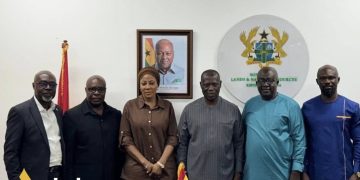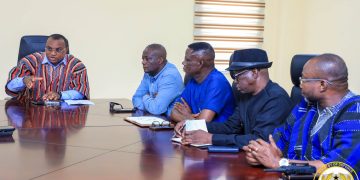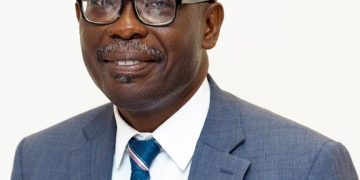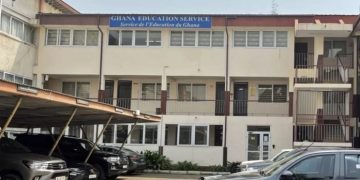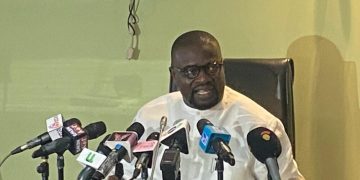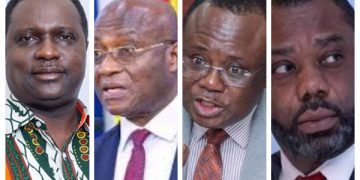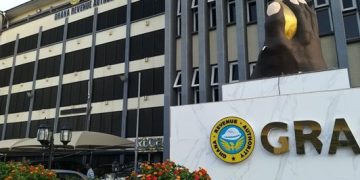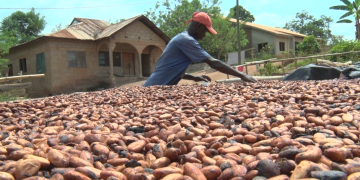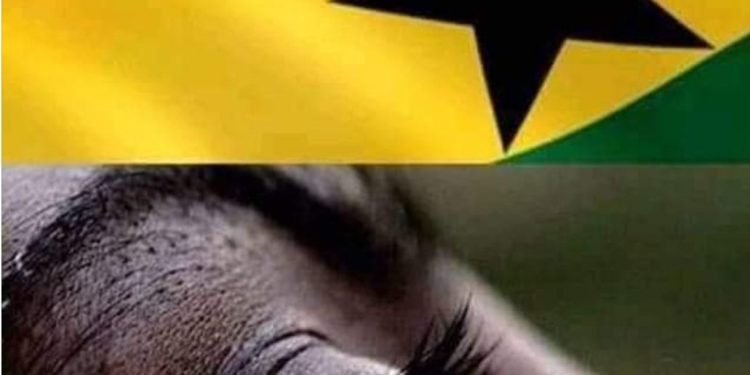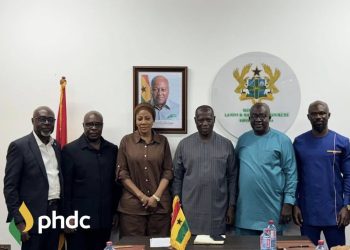Without making prejudice or judgmental about any corruption scandal levelled against any individual by the Dr. Dominic Ayine (Attorney General & Minister of Justice), I can’t just understand now criminally-minded and bold government officials can be to enrich only themselves.
Ghana is rich in potential: natural resources, youthful energy, educated graduates. Yet time and again we witness a devastating pattern, senior public officials entrusted with the public purse turn around and undermine the very foundation of development.
When tens or hundreds of millions of Ghana cedis vanish from vital social programmes, the ripple effects are felt deeply in every Ghanaian household.
Here’s a breakdown of key scandals now exposed by the Attorney General and what they reveal about the institutional rot threatening the progress of the nation:
1. The National Service Authority (NSA) “ghost names” scandal
The NSA scandal began to surface in ending 2024. The Attorney General in early 2025 revealed that from at least the 2018/19 service year onward, non-existent names (“ghost names”) were inserted into the national service payroll system and payments made in the names of those fake recruits.
Key figures:
• For service year 2018/19: GH¢ 25,857,836.16 lost.
• 2019/20: GH¢ 21,613,962.24 lost.
• 2020/21: GH¢ 55,670,584.32 lost.
• 2021/22: GH¢ 61,383,025.74 lost.
• 2022/23: GH¢ 350,926,977.12 lost.
2023/24: GH¢ 32,881,157.07 lost.
Total estimated loss: GH¢ 548,333,542.65.
Then, in October 2025, the Attorney General announced that a forensic audit by the Auditor‑General’s Department found the total illegally spent or stolen now stood at GH¢ 2.2 billion.
How it was done:
• The NSA directors inflated the number of recruits before each service year, thereby increasing the budget allocation for allowances.
• Ghost names were inserted; then both ghost and genuine names were transmitted for payment via the Ghana Interbank Payment & Settlement System (GHIPSS).
• Funds meant for service personnel allowances were redirected, including via E-Zwich cards linked to fake names. For example, GH¢ 8,256,000 was deposited into an E-Zwich account (No. 1177042059) registered in the name of the former NSA boss Osei Assibey Antwi.
2. The National Signals Bureau (NSB) scandal- Kwabena Adu Boahene
In March 2025 the Attorney General revealed that the former Director-General of the NSB, Kwabena Adu Boahene, allegedly diverted GH¢ 39,462,480 (≈ GH¢ 39.46 million) from the agency into his and his wife’s private accounts.
Another breakdown: GH¢ 49 million diverted, of which GH¢ 9,537,520 was paid to an overseas company (ISC Holdings) for a contract; the remainder was alleged to have been siphoned by Boahene and his wife.
In July 2025 the court fixed July 18 to begin his trial over the alleged misappropriation of GH¢ 49.1 million.
Method:
• He signed a contract for a cybersecurity software at US$7 million (≈ GH¢ 49 m) and transferred GH¢ 27,100,000 from the NSB account to a private company account (BNC Communications Ltd) under his control.
• Banks were warned not to move any assets belonging to him or his wife, as the Financial Intelligence Centre (FIC) is tracking their accounts.
3. The National Food and Buffer Stock Company (NAFCO) scandal- Hanan Abdul‑Wahab
In October 2025, the Attorney General announced criminal charges would be filed against the former CEO of NAFCO and his wife, over alleged theft of GH¢ 78 million from the company.
He also provided a breakdown showing over GH¢ 40 million looted via seven linked companies:
• Sawtina Enterprise → GH¢ 16,179,137.25
• Alqarni Enterprise → GH¢ 23,913,964.90
• Fa-Hausa Ventures → GH¢ 500,000.00
• Chain Homes Ghana Ltd → GH¢ 550,000.00
Totaling GH¢ 40,493,102.15.
Other findings: Between 2017-24 over GH¢ 78,269,084.04 was transferred from NAFCO to private companies linked to Abdul-Wahab and his associates.
Why this matters
When tens of millions vanish from the payroll of national service personnel, or funds earmarked for feeding school children are diverted, the victims are the ordinary Ghanaian: the young graduate denied fair allowance; the parent whose child misses a school meal; the hardworking public servant watching budgets inflate with ghost names; the taxpayer whose trust is betrayed.
Corruption on this scale drains Ghana’s public finances and erodes faith in institutions.
These cases underline a disturbing reality; public office is too often seen not as a tool for service, but as a source of personal enrichment.
Reflection on Leadership and Accountability
Anytime I recall and watch the clip of former President Nana Addo Dankwa Akufo-Addo saying and I quote “I’ve said it and I’ll repeat it again: those who are coming into this administration thinking that there’s an avenue for making a lot of money are going to be disappointed. They better go to the private sector; that’s where people make money, not in government.”
He made this statement on December 22, 2016, while addressing the Private Enterprise Federation’s Annual General Meeting as President-elect.
Surprisingly, those powerful words turned out to be nothing more than empty promises void of conviction or faith. If what the Attorney General, Dr. Dominic Ayine, has revealed is anything to go by, then clearly, the former President was out of touch with the reality within his own administration.
Because, undeniably, all these alleged scandals billions lost through the National Service Authority, the Buffer Stock Company, and the National Signals Bureau happened under his watch between 2017 and 2024.
I constantly ask myself: Where were the oversight institutions EOCO, the CID, CHRAJ, and the Office of the Special Prosecutor (OSP) when all these alleged crimes were taking place? Where were the auditors in these state agencies when such massive diversions of funds occurred without detection?
My heart is heavy with sorrow. They told us, “the future belongs to the youth,” yet those entrusted to protect that future have systematically betrayed it.
Sadly, many of them do not even understand the weight of that statement or the responsibility it carries.
To Ghana, my motherland
We must demand accountability, strengthen oversight, call for full prosecution and recovery of stolen funds, and rebuild systems that ensure public officials are trained not only to manage funds but to uplift the lives of the citizens they serve.
Disclaimer: All amounts and allegations presented above are as disclosed by the Attorney General and associated investigative agencies. Individuals named are entitled to due process and are presumed innocent until proven guilty.
By: Kwadwo Owusu, Corridors of Critical Thinkers


